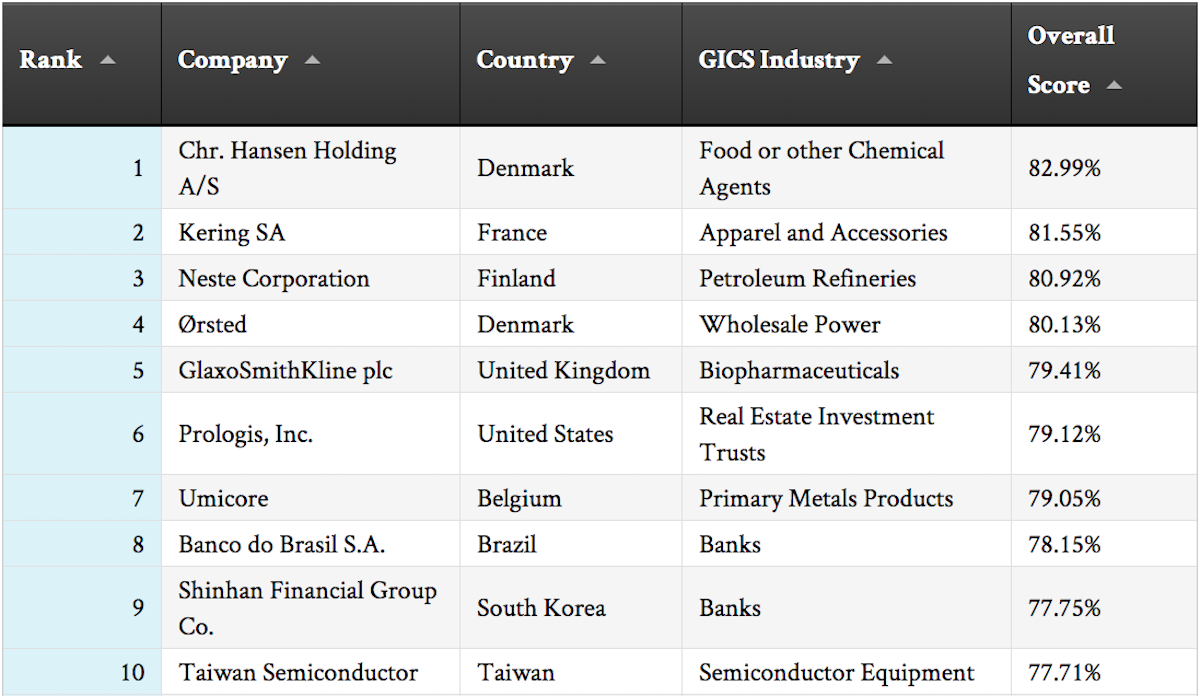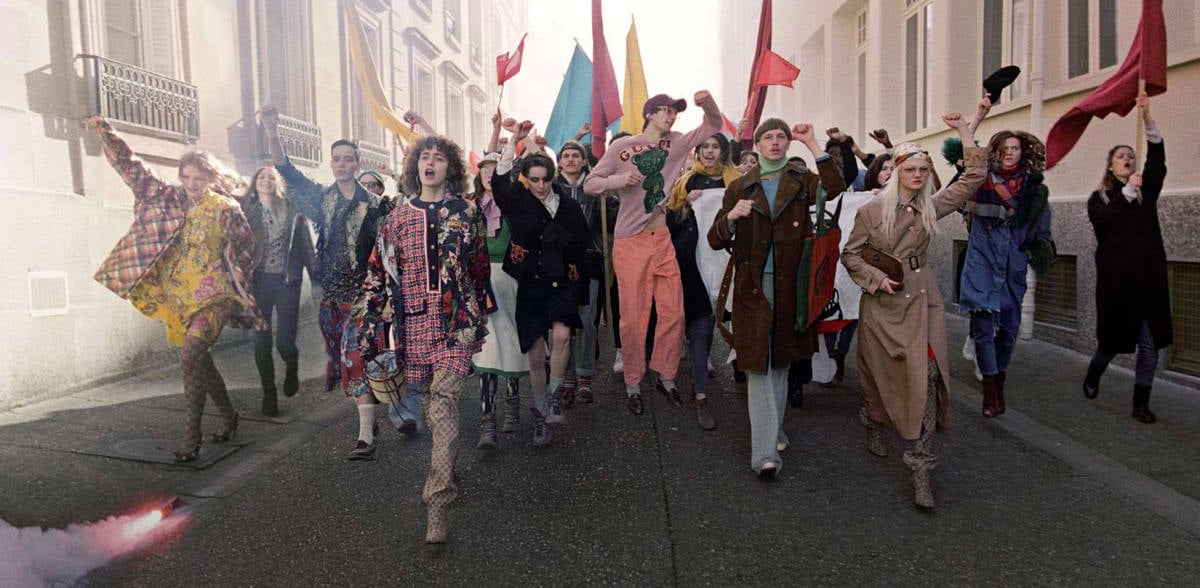In the modern age, sustainability means far more than recycling water and minimising waste.
According to Corporate Knights’ list of the 2019 Global 100 Most Sustainable Corporations, it encompasses carbon and waste reduction, gender equality in leadership and even revenues derived from clean products.
Now in its 15th year, the annual ranking is compiled by a Canada-based, sustainability-focused financial information firm, Corporate Knights.
Starting with a list of around 7,500 companies from around the world – all of which generate upwards of US$1 billion in annual revenue – analysts spent more than 5,000 hours sifting through 3.7 million data points to narrow it down to the top 100.
These are the top 10 companies leading the eco-friendly charge

Over the past 12 months, Corporate Knights has monitored the dramatic changes occurring in the global sustainability landscape.
Climate-sceptic leaders came into power in some of the world’s biggest-emitting countries, greenhouse gas emissions rose in 2018 after a five-year trend of reductions, the #MeToo movement emphasised how much still needs to be done to balance the gender scales, and a growing number of companies committed to reduce emissions and even to 100% renewable energy over the coming years.
What can we learn from the top sustainable companies?
- They live longer
- They have better governance than their peers
- They are greener
- They employ more women
- Their revenue is cleaner
- Their investors are happier
This year’s Global 100 ranking suggests that performing well on sustainability issues not only makes more money but also helps companies live longer. The average age of companies on the 2019 list was 87 years, compared with the MSCI All Country World Index (ACWI) average of 63.
The top 100 sustainable companies were found to have a lower CEO-to-average-worker pay ratio than the ACWI (76:1 vs 140:1), an important measure in an age of increasing income inequality.
They also pay more taxes; on average, 18% of EBITDA compared with 16%. The report found that companies perceived to be avoiding their fair share of taxes through financial engineering are coming under growing pressure from consumers, policymakers and regulators.
Sustainable companies have double the carbon productivity (weighted average of US$238,000 in revenue per tonne of CO2e vs US$157,000 for the ACWI), and derive more of their revenues from clean (positive green or social impact) goods and services (26% of total revenues vs just 9%).
For instance, overall winner Chr. Hansen’s success is based on a strategy of using natural solutions to address some of the key global megatrends, such as increasing food yields, reducing food waste and phasing out antibiotics in animal production, says its CEO Mauricio Graber.
Corporate Knights found that these companies have more women on their boards – an average of 27% vs 19% for the ACWI. They’re also more likely to have a link between sustainability measures and executive pay.
Ranked second this year is Kering SA, the French luxury group that owns fashion houses including Yves Saint Laurent, Gucci and Alexander McQueen. Notably, more than 60% of Kering’s board of directors is composed of women.
Almost 30% of Chr. Hansen’s board is also made up of women and it recently became the first large Danish listed company to have a female chair.

This year, half of every company’s score was determined by its percentage of clean revenue – revenue generated through sustainable products. Leading the way is Chr. Hansen, which derives more than 80% of its revenue from the development of natural solutions for food preservation and crop protection, and alternatives to antibiotics for animals.
Coming in eighth, Banco do Brasil’s US$50 billion green loan book accounts for almost one-third of its total loan book, by far the highest percentage for any bank. Ranked third, Finish oil and gas refiner Neste earns 25% of its annual US$11.7 billion in revenue from refining biofuels, and aims to raise that figure to 50% by 2020.
According to Corporate Knights, shareholder satisfaction is more likely with companies that place emphasis on sustainability. Between 2005 and 2018, Global 100 companies made a net investment return of 127.35%, compared with 118.27% in returns from companies on the ACWI.
Click here to view the full list of sustainable companies.
From a therapeutic retreat at Iceland’s famous Blue Lagoon to a greenery-filled hideaway in the heart of bustling Brooklyn, journey responsibly and check into one of these eco-luxe hotels.








